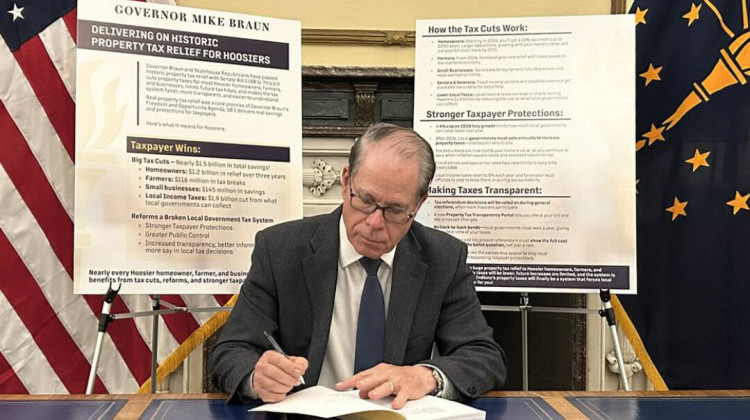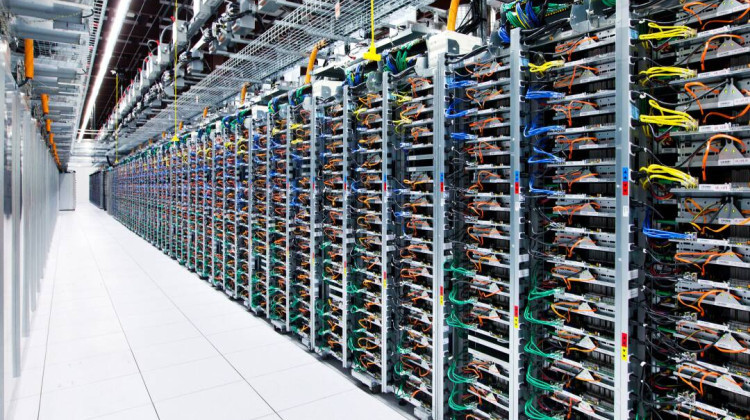
A microscopic image of a zooplankton with an overlay to show the algae in the organism's guts (blue) as well as microplastics (red dots).
Courtesy of Chris Malinowski/Purdue UniversityMicroplastics in lakes and ponds can cause algae to grow out of control — depriving fish and other aquatic life of oxygen. That’s according to new research by Purdue University.
Tiny organisms like zooplankton eat algae — helping to control it in lakes and ponds. But Purdue researchers say too many microplastics — which are about the same size as that algae — can get in zooplankton's way. Among other things, it can cause gut blockages and other issues that limit how much algae they can eat.
Too much algae in water can deprive fish and other aquatic life of the oxygen they need to survive. It can also release toxic chemicals that can make the water unsafe for animals and people alike.
Tomas Hook is a professor in Purdue's Department of Forestry and Natural Resources and directs the Illinois-Indiana Sea Grant program.
“It’s not simply that they’re in the environment and it’s kind of alarming that they’re there — but that they're actually having not only direct but also indirect effects on how environmental systems function," he said.
READ MORE: Does recycling plastic help with climate change?
Join the conversation and sign up for the Indiana Two-Way. Text "Indiana" to 73224. Your comments and questions in response to our weekly text help us find the answers you need on statewide issues, including this series on climate change and solutions.
Hook said microplastic pollution in waterways is likely only going to get worse, since global plastic production is going up.
“There are reasons to think that we're going to see even higher concentrations of plastics in the future," he said.
Hook said we need to develop better filters for sewage treatment plants to capture microplastics before they get to our waterways.
Individuals can help by using less plastic, disposing of it properly and adding microplastic filters to their washing machines.
Chris Malinowski directs research and conservation at the Ocean First Institute. He said more research with improving technology is critical to understanding how microplastics spread and plastic's impact on the environment, so that the public can better informed decisions.
Rebecca is our energy and environment reporter. Contact her at rthiele@iu.edu or follow her on Twitter at @beckythiele.
9(MDAyMzk1MzA4MDE2MjY3OTY1MjM5ZDJjYQ000))
 DONATE
DONATE






 Support WFYI. We can't do it without you.
Support WFYI. We can't do it without you.